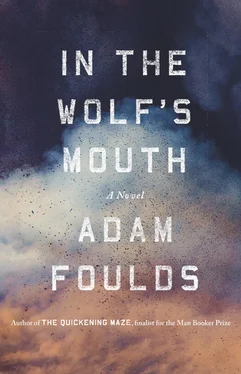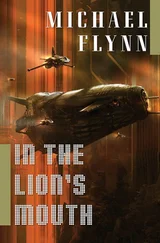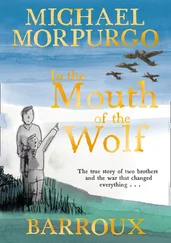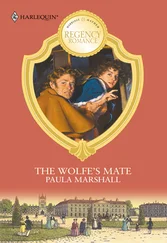‘Just be quiet.’
She went out through the little wooden door and Ray fell back down where he sat. He could still feel her there, how she’d stirred the air around. He looked up and saw timber rafters. How had he not thought of those? He needed to check all of them.
Descending back into the house, wondering about the secret violence and desperation she now had stored in the attic, Luisa turned into the corridor and saw Graziana. The old woman looked down.
‘What do you know?’ Luisa asked her.
‘Beg pardon, miss?’
‘What do you know?’
‘I don’t know what you mean.’
‘I think you do.’
‘I’m sorry, miss, I don’t. There’s lots I don’t know, God help me.’
‘That’s good.’
‘And I don’t want to know it, either.’
‘Even better.’
Luisa walked on past her. As a child, Luisa had thought of the large atrium with the marble staircase as a kind of huge mouth, like the jaws of a lion. When she went out, it spat her out. When she came in, it swallowed her. The lion was sneaky: it would pretend it wasn’t there, that everything was normal, just a room and some stairs and a high, painted ceiling, but she knew it was there. She could feel it forming in the air around her.
She hadn’t thought of the lion for a long time or perhaps unconsciously she always did and it was something she took for granted in the nature of the house. Today as she hurried out she noticed and remembered. Across the courtyard, her father leaned on his stick. He was smoking his pipe, his preferred form of outdoor smoking, and was deep in conversation with Angilù. She waved at them and whispered to herself, ‘Just stay over there, don’t ask me anything.’ Her father raised his hand in lofty salute and rose to his full height as he saw her hurrying away.
In the stables, Luisa approached Ezio, soothing him with the palm of her hand and murmuring to him, carefully informing him of her presence. Ezio shifted sideways over his urinous straw. She fitted the saddle. From the bridle, Ezio reared and snickered, again and again. His neck was one long surge of muscle. He held his head high and disdainful. Minutes passed with Luisa attempting to ensnare him, her arms aching from being held up, her fingers losing their dexterity. But she would not give up and on one pass she caught the stupid horse and he knew he was beaten. Ezio allowed the bit between his long yellow teeth and jumping dark lips.
She led him out without a guard, without telling anyone. Unused to getting into the saddle without a guard’s hands to step on, Luisa struggled for a while, cursing and flinging herself upward, pulling Ezio’s head uncomfortably down to the side. Once she was up and had found both stirrups, she rode quickly away from this undignified tussle.
Her father met her at the door of the house.
‘I know, I know,’ she said pre-emptively. ‘I was in a hurry. I needed to get out.’
‘If you know then it won’t happen again. Who knows who or what’s out there at the moment. Do you understand? Luisa, I’m not often strict with you.’
Luisa pouted, looking at the ground.
‘There’s something else I wanted to ask. Do you know anything about an American soldier coming here? The gardener said he thought he’d seen one come to the house the other day.’
‘No. I haven’t seen anyone. Maybe he was lost. He must have wandered off again.’
Despite the convulsions of her heart, Luisa was pleased her father had asked this question. Now he had an answer and once people had a story they believed, they stopped looking for alternatives. The incredible reality was now the last thing her father would suspect. Just as he’d believed her about the accident with her scissors. She looked down at her hand and flexed her fingers. The bandaged wound was mute.
He slept in snatches, trying not to. The trench of Germans filled with blood. The blood overbrimmed and rolled along the ground towards him. If it touched him, he would die too. There were sudden explosions that blew him awake, threw him out of death there onto the floorboards checking around to see if he really was alive, if his body was still whole.
The dark was almost total. The two small windows could just about be discerned from their surroundings, a smoother, more liquid black. If he crawled to one of them maybe he would see stars or lights.
He didn’t move. He lay there thinking about his mother and father, his brother and sister in the little apartment, not knowing about him. So far away. Like they were all in a tiny dark box in vast space. And there was George out there still. His brain went blank and switched on again. He listened for sounds of possible war.
Eventually, the dawn light hung blue in the big emptiness of the attic. Ray found himself staring at the rocking horse. It was made of carved wood. Its four carved hooves stood on two curved runners so that it rocked, so that a child could play on it. It was made to look like a real horse. Nostrils had been carved, and goofy teeth, and eyes and the shapes of some of the horse’s muscles. The legs were realistic, particularly at the back: that big rounded section like a chicken’s thigh. There was a saddle on it. Hours of work had gone into it. He could see that. Hands had worked for hours on that shape, scraping away with chisels and whatever they used to get that shape out of raw wood, a clear horse shape that stood in just the right place on its little runners so that it would rock back and forth and not tip over. Amazing effort had gone into it. A pattern of fur or hair or whatever the fuck you called it on a horse had been painted. The teeth were painted a different colour. So were the insides of the nostrils. All this effort to make this one pretend horse for a child to sit on and swoosh back and forth. A rocking horse. The name told you what it was. Nobody really needed it, but there it was for a child to pretend to be on a horse. Because horses were things children should know about. Children had to know about lots of things. They didn’t know anything. They had to learn them one by one, one after the other, and horses were one of those things. Also, it was nice to rock back and forth, that movement was nice. It was a ride, a game. It felt good for the child to rock back and forth and so all those hours of carving and painting to make a little horse to ride. Ray felt himself on the horse as a child, tilting forward and back, falling forwards, sliding back, the weight of his dangling feet in laced shoes swinging his legs. It was wonderful. The rocking horse was made for this.
Ray closed his eyes, thinking about it, and lay back down. And the floorboards under his head were wood that had been cut. And the ceiling and the door. The whole world was made. People made it.
Two men had been killed in the square of Portella Corvi. They had died of shotgun wounds which were large and ragged. Shot, then, at close range. The presumption would be that they were ex-Fascists shot in reprisal. Nevertheless, this was very much the kind of chaos that could not be allowed to take hold. The local police were investigating under the newly arrived supervision of officers from the London Metropolitan Police, but, as a Civil Affairs Officer, Will took it upon himself to visit and ask a few questions.
An exhilarating, swooping motorcycle ride through the mountains left Will’s body vibrating as he stood over the blood-stained paving stones and asked Sergeant Whelan what they’d found out. Apparently this was nothing. There were no witnesses.
‘Isn’t that a bit, you know, implausible, given that we’re in the town square?’
‘That had crossed my mind. I don’t believe a word of it. Blank face after blank wop face. Their mother was taken ill. They were in church. They heard a noise but when they looked the assailants had scarpered.’
Читать дальше












